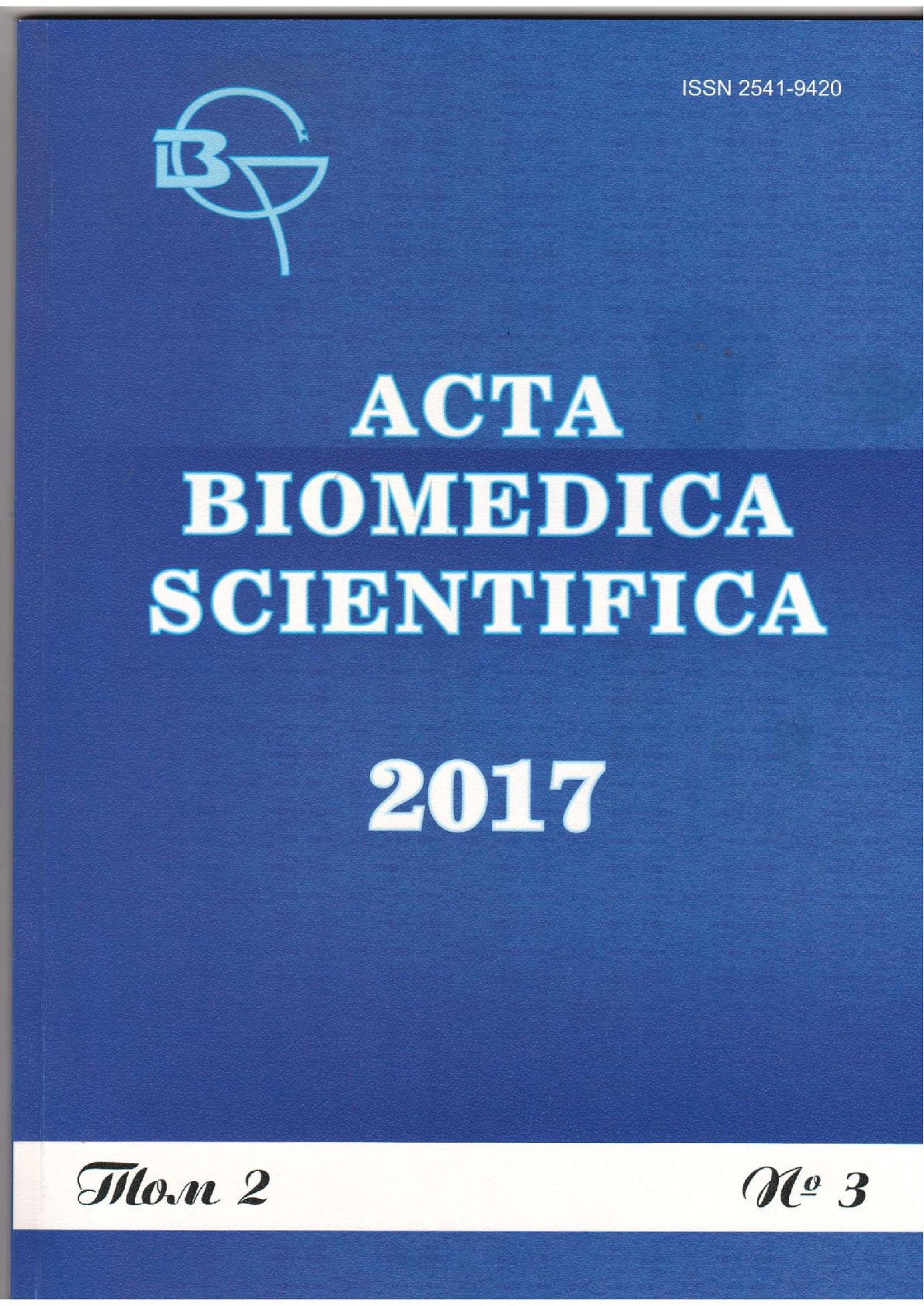Irkutsk, Irkutsk region, Russian Federation
disorders was analyzed by a continuous method. 24 (20,2 %) of them were recognized as disabled for the first time, 95 (79,8 %) – were recognized as repeatedly disabled; 80,7 % were of working age, but only 10 persons of them (10,4 %) worked. The need for medical rehabilitation was revealed in 100 % of people with disabilities, for professional rehabilitation – in 65,6 %, for social rehabilitation – in 23,5%, for adaptive physical training – in 0,8 %. Full rehabilitation in re-examination was achieved only in 1,3 % of cases, partial rehabilitation – in 1,3 %, employment – in 1 case. Weighting of disability was occurred in 5,2 %. In order to improve the efficiency of complex rehabilitation of disabled people it should include socio-psychological, socio-cultural rehabilitation and adaptive physical education in addition to medical and professional rehabilitation.
depressive disorders, disability , rehabilitation
1. World Health Organization (2011). World report on disability [Vsemirnyj doklad ob invalidnosti]. Availiable at: http://www.who.int/disabilities/world_report/2011/summary_ru.pdf?ua=1 (accessed 14 February 2016).
2. On the approval of the order of development and implementation of individual programs of rehabilitation or habilitation of a disabled person, an individual pro issued by federal government institutions of medical and social expertise, and their forms: Order N 528n of the Ministry of Labor and Social Protection of the Russian Federation d.d. 07.31.2015 [Ob utverzhdenii poryadka razrabotki i realizatsii individual’noy programmy reabilitatsii ili abilitatsii invalida, individual’noy programmy reabilitatsii ili abilitatsii rebenka-invalida, vydavaemykh federal’nymi gosudarstvennymi uchrezhdeniyami mediko-sotsial’noy ekspertizy, i ikh form: Prikaz Ministerstva truda i sotsial’noy zashchity Rossiyskoy Federatsii ot 31.07.2015 g. № 528n]. Availiable at: http://www.invalidnost.com/forum/3-2882-1 (accessed 14 February 2016).
3. On the ratification of the Convention on the Rights of Persons with Disabilities: Federal Law of the Russian Federation d.d. 03.05.2012 N 46 [O ratifikatsii Konventsii o pravakh invalidov: Federal’nyy zakon RF ot 03.05.2012 g. № 46 FZ]. Availiable at: http://www.rg.ru/2012/05/05/invalidi-dok.html (accessed 14 February 2016).
4. On social protection of disabled persons in the Russian Federation: Federal Law of the Russian Federation d.d. 20.07.1995 N 181 [O sotsial’noy zashchite invalidov v Rossiyskoy Federatsii: Federal’nyy zakon RF ot 20.07.1995 g. № 181 FZ]. Availiable at: http://www.kszn.ru/Zakony_v_otnoshenii_invalidov/p2_articleid/19 (accessed 14 February 2016).
5. Petrunko OV, Klimenko OG (2013). Disability as a result of affective disorders in the Irkutsk Region by the appealability to the bureau of medical and social expertise [Invalidnost’ vsledstvie affektivnykh narusheniy v Irkutskoy oblasti po obrashchaemosti v byuro mediko-sotsial’noy ekspertizy]. Byul. VSNTs SO RAMN, 2 (1), 107-110.
6. Barbour K, Edenfield T, Blumenthal J (2007). Exercise as a treatment for depression and other psychiatric disorders: a review. J. Cardiopulmonary Rehabilitation and Prevention, (27), 359-367.
7. Bromet E, Andrade LH, Hwang I et al. (2011). Cross-national epidemiology of DSM-IV major depressive episode. BMC Medicine, (9), 90.
8. Dawson A, Tylee A (2001). Depression: social and economic time bomb, 191.
9. Ferrari AJ, Charlson FJ, Norman RE et al. (2013). Burden of depressive disorders by country, sex, age, and year: Findings from the Global Burden of Disease Study 2010. PLoS Med, 10 (11), e1001547.
10. Knapen J, Vancampfort D (2013). Evidence for exercise therapy in the treatment of depression and anxiety. Int. J. Psychosoc. Rehabil., 17 (2), 75-87.
11. Ormel J, von Korff M, van den Brink W et al. (1993). Depression, anxiety, and social disability show synchrony of change in primary care patients. Am. J. Public. Health, 83 (3), 385-390.
12. Rethorst C, Wipfli B, Landers D. (2009). The antidepressive effects of exercise: A meta-analysis of randomized trials. Sports Medicine, (39), 491-511.
13. Spijker J, Graaf R, Bijl RV et al. (2004). Functional disability and depression in the general population. Results from the Netherlands Mental Health Survey and Incidence Study (NEMESIS). Acta Psychiatr. Scand., 110 (3), 208-214.
14. Ustün TB, Ayuso-Mateos JL, Chatterji S et al. (2004). Global burden of depressive disorders in the year 2000. Br. J. Psychiatry, (184), 386-392.
15. Verboom CE, Sentse M, Sijtsema JJ et al. (2011). Explaining heterogeneity in disability with major depressive disorder: Effects of personal and environmental characteristics. J. Affect Disord., (132), 71-81.





